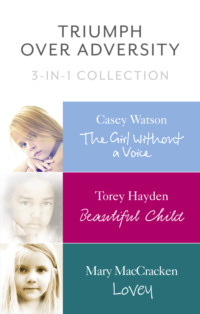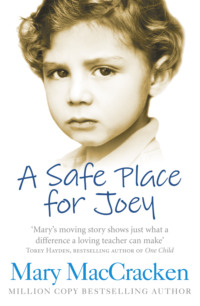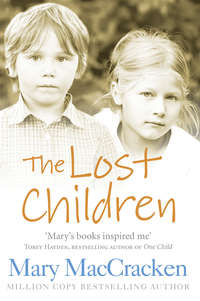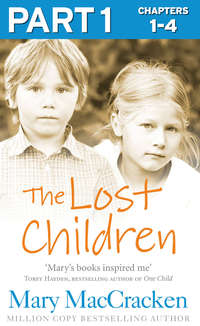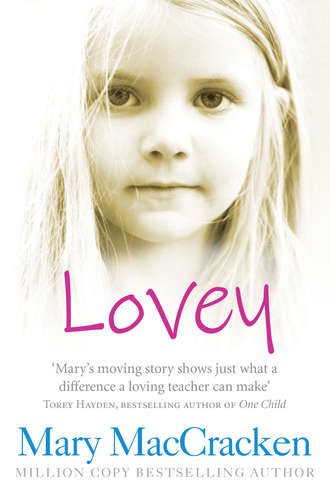
Полная версия
Lovey
I spread the folder out on one of the tables before the open windows. Small air currents stirred through the room and riffled the edges of the papers. I was eager to read the reports, hoping to discover what had happened to make Hannah so angry, so frightened. She was more like a young animal than a little girl. Why wouldn’t she let anyone near her? Where had the rage and self-destruction come from?
The folder contained a school form filled out by Mrs Rosnic, a health form from the paediatrician, a report from the principal of the public school Hannah had attended; there were also a joint report by a psychologist and a social worker at a mental health clinic, a final report by another psychologist from the public school, and a half-page year-end report written by Hannah’s teacher from last year. From these I gradually pieced together Hannah’s history.
She had been born eight years earlier in a hospital in New York City. Her life had been filled with violence from the beginning. She had cried constantly through her first days and nights, eating little at first, finally refusing to eat at all. In desperation, Mrs Rosnic took her back to the hospital where she had been born. They discovered an abdominal obstruction which had caused food blockage and dehydration. Hannah was operated on and hospitalised for several weeks.
When she returned home she was able to eat and some of the screaming stopped, but she rocked back and forth in her crib, banging her head against the end panel.
Her brother, Carl, three years older, was resentful of the new baby. One day soon after Hannah came home from the hospital, Mrs Rosnic found Carl by Hannah’s crib, hitting her on the head again and again. In spite of everything, she grew; she walked at thirteen months and completed toilet training at age two. However, Mrs Rosnic continued to bottle-feed her until she was three years old, and although no connection was made, it seemed pertinent to me that Hannah didn’t try to talk until then. Her speech consisted primarily of grunts and monosyllables that only Mrs Rosnic could understand.
When Hannah was four, her family moved to the run-down industrial city where she still lived. They occupied a two-family house in a derelict section of town. Mrs Rosnic’s father lived downstairs; the Rosnics themselves occupied the second floor.
Hannah’s father had been a strange, brutal man. He must have been tortured by both emotional and physical ailments. The records showed that he had been in and out of mental institutions over the years, yelling, shouting, beating his children when he was home. Later he was confined to a wheelchair, from which he berated the world and everyone in it. He died in the same bizarre manner in which he had lived. Rising suddenly up out of his wheelchair at his mother’s funeral, he was stricken with a heart attack and died the next day, two years before Hannah came to our school.
At the time of her husband’s death, Mrs Rosnic was pregnant with a third child. Still in her early thirties, a widow with little money and no training, with an ailing, demanding father, two young children, and another child soon to be born, she became ill herself, overcome by a deep depression.
She turned to her church for help; they put her in touch with a community mental health centre. Here she was interviewed jointly by a psychiatric social worker and a psychologist, who judged her to be of ‘bright normal intellect with a fair insight and judgement, but with a feeling of being unable to cope’.
I got up from the table and began to pace as I read. Who wouldn’t feel ‘unable to cope’ under similar conditions? The report ambled on, bleak and without compassion. Carl, Hannah’s brother, was summarised and dismissed in two brief sentences as having ‘a childhood adjustment problem with the unusual phobia of fearing the key to an old clock’. Hannah was described as ‘a seven-year-old Caucasian female –’
I put the report down, hating the stilted language. Who could write that? And why? Was it to impress some invisible audience or was it simply the way psychologists had been taught to write reports? Hannah was a sad, solid, gutsy little girl with blue eyes and red-gold hair. How could they write ‘seven-year-old Caucasian female’? Why did people deal out labels instead of looking at a child? Never mind. Forget the anger. It didn’t help now.
‘– Caucasian female exhibiting restless behaviour, with unintelligible speech consisting primarily of grunting noises. Judgement and insight extremely poor. Diagnosis: Psychosis. Organic brain disease versus schizophrenia.’
It seemed to me a dangerous, presumptuous diagnosis after one brief interview. I searched the remaining pages for more concrete information. An electroencephalogram had been made, and since it was within normal limits Hannah was put in a kindergarten class on a trial basis – but this lasted only a short time. Soon she was put on home instruction because of her ‘disruptive behaviour’. The dates in the reports were confusing, but it must have been a hard, bleak period for Mrs Rosnic, for the whole family.
I shook my head. No wonder the teachers in our school rarely complained. Our troubles, whatever they were, were small compared to the lives of our children and their families.
The late-afternoon sky was dark and the air was filled with the musty smell of rain. At least it would be cooler tomorrow. Tomorrow? Tomorrow would be here very soon and I still had a great deal to do before morning. I turned on the overhead light and skimmed the remaining pages.
Mrs Rosnic’s pregnancy had gone full term and Hannah had been born, a healthy eight-pound girl. Hannah had remained on home instruction until a place was found for her here; then one last psychological work-up was done in the public school. It said that Hannah – an aggressive child with a deep underlying pathology – seemed to be living completely in a world of her own. ‘This child must be regarded as a threat to other children.’
Lightning streaked across the sky. No one else was left at school and I knew I should hurry.
How could a child ever grow in a place where she was looked upon as a threat? There was only one positive note in the report: The psychologist noted that Hannah’s drawings showed ‘an above-average mentality’.
Well, maybe this was how I’d have to reach her, through her mind, her intelligence. But how could I get through? She’d fought so many enemies already in her eight years, seen more pain and cruelty than most of us do in a lifetime. Her mind must be sealed behind many layers – she would have needed to build thick walls in order to survive as long as she had.
Outside, the rain pelted hard against the black macadam. I closed my windows and read the last remaining page. The report from Hannah’s teacher of last year described Hannah as a troubled, sad little girl, unable or unwilling to use eating utensils, given to long crying spells and temper tantrums, her speech a garble of unintelligible slurred consonants – and yet her actions showed an acute awareness of her environment. She had remained difficult and disruptive throughout the year, but there had been some improvement and rapport gradually developed between teacher and child.
It must have been a cruel blow for Hannah to come back this morning and find her teacher gone, the first semblance of security disrupted. Whatever tiny hope had stayed alive inside her must have crashed into despair.
I put the report on the top shelf of my closet and left by my own door. I stood on the step just outside and watched the small rivers of rain swirl past; then I took off my shoes and raced up the driveway to the car park in my bare feet. But when I reached my car, I stood still for a minute before getting in. My dress and hair were already soaked and the rain felt cool and clean against my face and arms. I wished that it would cool my head and heart as well. Hannah would bring enough passion into our room. She would need a teacher who was clear and steady and strong.
What I needed to do, had to do as soon as possible, was set up an appointment with Mrs Rosnic so that we could talk. There were so many complicated factors in Hannah’s history: the operation, the isolation of the hospital, the head blows, the brutal father, the prolonged bottle feeding. I was as confused as when I started.
Chapter 3
‘Good morning, Rufus,’ I said as we arrived together the next day. ‘How’s it going?’
But his ebullience of yesterday morning was gone. He sat down glumly and peered at me through his horn-rimmed glasses without answering my question. Instead he asked, ‘Is that girl going back to her other class?’
‘Hannah? Hannah doesn’t have another class. She was only in the other room yesterday by mistake. This is her regular room.’
Rufus looked down at his feet. ‘I don’t like her. I don’t like her in here. She ruins everything.’
I sat down beside Rufus. I knew how he felt. I’d said almost the same thing to the Director. ‘Hannah’s had a really rough time …’ I began.
Rufus got up from the table. ‘I don’t want to talk about her!’ he shouted at me. ‘I hate her! Don’t you understand that? I hate her and I don’t want to talk about her!’
‘Okay,’ I said. ‘Okay. What do you want to talk about?’
‘Nothing.’ Rufus kicked the table leg with the toe of his shoe. ‘I just want it to be the way it was last year, without that dummy girl.’
It wasn’t just Hannah. It was always hard for the kids when a new child came. With only four children in a class, we were so much a part of each other that what one did profoundly affected the others. The children’s usual stay at the school was for three years, although if they were making good progress and had not yet reached their thirteenth birthday they were sometimes allowed to stay for a longer period. This was Rufus’s fourth year, and he had been in my class from the start.
When he had come to our school three years before, he had looked more like a middle-aged businessman man than an eight-year-old boy. He wore a dark suit and heavy horn-rimmed glasses, and his hair was combed flat against his head. He carried a large brown briefcase and he’d talked to his briefcase most of the first weeks, crouching nervously behind a bookcase.
Rufus was scared of the world, the school, and himself. He was intelligent and he used his intelligence to manipulate the world, which only made it more frightening. Illness was his control. Anything that Rufus thought might prove unpleasant or difficult was met with a stomach ache. Usually this meant that he stayed home or got special attention, which was what he’d wanted in the first place.
But gradually Rufus had grown stronger and more independent. Occasionally, under stress, he still talked to an imaginary companion, and sometimes when things went badly at home he wet the bed. But Rufus was growing all the time. If there was a leader in our classroom, it was Rufus.
Now that Rufus had started talking, he kept on. ‘She’s a dummy girl. She can’t even talk and she’s fat and she’s dirty.’
Any new child is difficult, but a child like Hannah is a triple threat. She not only claimed my attention and destroyed the safety of our classroom, she also reminded the boys of how fragile they were themselves. If one child in the room could shatter, so could they all.
Rufus gave the chair another kick. ‘Why does she yell like that? Why don’t you make her stop?’
‘I’m trying, Ruf. Believe me, I’m trying. Just give her a little time; give us all a little time. First days are hard. Remember Jamie last year? He yelled and kicked and ran away whenever he could. I know Hannah’s hard, but it’s only the second day and maybe today will be better.’
By nine-thirty my attempt at optimism was fading. The boys were there but they were tense, and there was no sign of Hannah at all. Rufus was rubbing his stomach as if recalling the pains he used to have. Jamie had the record player turned too high, his thin, taut little body rocking from one foot to the other while he kept his hands pressed over his ears. Brian drew stick fingers representing the stars he’d watched on television panel shows the night before, keeping up a low barrage of commercials all the while. He carefully drew a box around each figure, as though to keep it isolated, separate from the rest. Television was Brian’s link with people. Encased in the glass box of the TV screen, they were far enough away so that they weren’t frightening.
When Brian had come to the school four years before, his speech was incoherent and he refused all food – both at home and at school – except for milk and saltines. But there had always been a sweetness about him as well as curiosity and intelligence, and these qualities had brought him a long way. He too had been in my class from the beginning. I knew how threatening Hannah’s anger must be.
All this tension and no Hannah. Where was she? It was almost ten o’clock. Had she gone back to Ellen’s room? Climbed back inside the jungle gym? Had she or her mother given up after yesterday? Would that one day be her only day with us?
Come on, Hannah, I thought. Don’t give up before we’ve even started. It was going to be hard, but she had so much potential. It was all there – in her records, in her eyes – it just had to be tapped. Yesterday I’d almost resented her; now I was impatient for her.
Just then something caught my eye outside the window. Hannah? I couldn’t believe it. She stood absolutely still about an inch away from the glass. Her face was turned sidewise, obscured by her long, matted, gum-filled hair. I tried to watch her without moving my own head. I had the feeling she would bolt if she knew she had been seen. But she was there, that was what counted. She had come back, she remembered where our room was, and she cared enough to watch us through the window.
Then Brian saw her too and one hand fluttered against his side while he pointed with the other. ‘Look. There’s the girl. She’s looking in the window.’
Rufus and Jamie turned and Hannah vanished. I ran across the room to our door, opened it, and stepped out, but there was no sign of her. Not in the bushes, not on the driveway. I came back and called to the boys, ‘Maybe Hannah’s in the office. I’ll –’
But before I could finish my sentence the hall door opened and there stood Hannah.
Fat face and hands dirtier than ever, but balancing lightly, almost airily, she stood on her toes in our doorway, clutching a crumpled paper bag.
‘Good morning, Hannah,’ I said. ‘Come in.’
She stood for one moment more and then, half turning, half dancing across the few feet to the back of the classroom, she pulled open the closet doors. She stood once more, absolutely still, and then sank slowly to the floor. We were all staring at her. She was an absurd figure with her long dress and matted hair and yet she had an indefinable grace that contrasted with her heavy body and bruised eyes.
I spoke a little louder than usual to break whatever spell was in the room. ‘I’m glad you’re here, Hannah.’
Hannah sat without speaking, half in, half out of the closet. I suddenly realised that it was she who was in total command of the class. This was no way to begin.
I moved towards the door. ‘Turn off the record player, please, Jamie. Okay, Brian, Hannah. Rufus, get the lights, please. We’re going next door to Patty’s room for Circle.’
Hannah, of course, sat without moving, but the boys moved quickly out the door and down the hall.
I waited one more minute to see if Hannah would change her mind. Nothing. Only her eyes flickered, alert, wary, watching me. Her face and neck were grimy, the pink wads of gum were still in her hair, but her dress was clean. It was the same shapeless style, tied at the waist with a string, but clean. I left Hannah in the closet and walked down the hall after the boys. A clean dress. Somebody cared about Hannah.
The coat closet became Hannah’s place in our room. She sat there most of the first two weeks. She had her own cupboard, her own table and chair, even her own work folder, but she barely touched them. In the beginning her grief and anger and confusion were too large to let her work. The most important thing just then, more important than work or discipline, was to let her know that we accepted her.
Children can’t begin to learn until they feel safe, and they can’t feel safe until they are honestly and completely accepted. A child like Hannah – hospitalised at six weeks, shut in closets, locked out of her home, beaten by both her brother and her father, rejected by the public school – not only feared other people, she feared herself as well.
Hannah knew she was different; she knew that parts of her were frightening, both to herself and others. But she didn’t know how to change. She couldn’t cut herself in pieces, divide herself in two, bring in only the good part. She needed to know that she was welcome, all of her, the good and the bad. That was enough for now. Changes could come later.
Hannah seemed to understand some of this, and gradually she became more peaceful. Each morning she left her bus and came through the Director’s office, down the hall, and into our classroom, closing the hall door behind her. She hung her sweater on the hook beneath her name and then settled herself in the closet to watch the boys arrive. She never greeted me, but she watched Rufus, Jamie, and Brian as they called to each other or exchanged a hug with me. The boys invariably left our door open and Hannah would get up each time and carefully, softly, close them again. It was as if she realised that she was safe in our room.
Although she didn’t participate, she watched us closely. There is no better teacher than another child. As Hannah watched the others, I knew the time would come when she would begin trying to do herself what she had seen the boys do.
Hannah was learning although she never opened her work folder. She began to touch it more often, going to her cupboard to run her finger across the name I had printed above it and taking out her folder, her paint smock, her book and notebook. None of them were ever used, but still they were hers. She would hold them in her lap and then put them carefully away and return to her seat in the coat closet. She was learning the details of our lives.
Details and routine. Outside of school I never planned ahead, avoiding ruts as much as possible. In school, however, our routine was the same each day. In the topsy-turvy world of emotionally disturbed children, routine provides security. The sameness of each day made it easier for them to cope.
The children arrived at nine o’clock and the first half hour was one of the most important of the day, although it might not seem so to an uninformed eye. Crises of the night before exploded in the classroom, and it was important for the teacher to be there to comfort or control. Treasures were brought in, and the teacher had to be there to share the pleasure of each small discovery. Sometimes problems arose on the way to school, or a child arrived without breakfast and the teacher needed to go down to the refrigerator in the furnace room for the milk and cereal that were always kept there. Although our children were not primarily underprivileged, often there was so much chaos in their homes that breakfast was impossible.
By nine thirty most personal crises had been dealt with and we were ready for the larger world of Circle. Circle was a kind of morning assembly where the whole school gathered together. At least we had until this year. Now we were too many for one room, and so the Director had divided us into two groups, the older children in one, the younger children in the other. During this time there was singing and dancing and group games. The purpose was threefold: to help the children relate and participate in a group, to improve gross motor coordination, and also to give the teachers the opportunity to see the other children in the school. At staff meetings on Wednesdays we discussed everyone, and it was necessary that we had at least a surface knowledge of each child.
After Circle, the children went to the bathroom and then came back to their classrooms. For the rest of the day, each teacher had a special programme for each child.
In our room we started with the Best and the Worst. In searching for ways to help the children learn to communicate, I had discovered Best and Worst. Most of our children had grave difficulty with communication. Some couldn’t talk at all; some were elective mutes, able to talk but refusing to do so; some, like Rufus, were too verbose; some articulated clearly but without meaning. Because communication is so important, I worked hard at finding ways to involve the children.
‘Show and Tell’ didn’t work. Our children had little to show and nothing to tell. To get through to them it was necessary to turn up the volume and intensity of communication.
A question like ‘Tell me what you did yesterday’ didn’t bring any response; it was too general, too vague. But when each and every day I asked them to report on the Best Thing and the Worst Thing that had happened to them, they not only responded, they began to savour the opportunity. Like most ideas, this started small and grew. When I had first asked the question four years before, answers had been a word or two at the most. But I insisted they all have a chance, whether they used it or not, and gradually they all began to talk a bit and – more amazing still – to listen to each other.
There were different children then – only Brian still remained of that first group – but each day we talked a little more until it became necessary to have limits, so that no one child could monopolise the time. Then, because the world of fantasy was so vivid – even more so than to other children, and therefore less distinct from reality – the Best Thing became their wishes, the Worst their dreams. This, of course, was good – so good and so surprising that the school psychiatrist who visited our class shook his head in amazement as he heard children labelled ‘schizophrenic’ or ‘autistic’ talk and listen to each other.
But it wasn’t enough simply to get the children to talk. I wanted them to understand the difference between reality and fantasy. It seemed to me that if they were ever to travel all the way back to live in the world, they needed to know and be able to differentiate between the two. So there got to be two parts to Best and Worst, ‘real’ and ‘pretend’, and the children sternly reminded each other of this. If a child began to talk about trucks as though they were people, calling the headlights ‘eyes’, another child was sure to remind him, ‘First the real, then the pretend.’
So Best and Worst became a part of my teaching equipment, and today, as usual, we pushed tables together, directly after Circle, all of us eager to begin. In order to have time for reading, language, arts, and maths, and then to go outside or play before lunch, each child was only allowed five minutes – but to me it was one of the most important parts of the day.
After lunch there was a rest period, then art, science, films, playground and auditory and visual motor training. The afternoon went by even more quickly than the morning. The day was too short; there was never enough time to do all that I had hoped to do.
During those first two weeks I made no demands on Hannah, letting her absorb the details and atmosphere of the school, letting the boys grow used to her, letting peace and a semblance of tranquility return to the class. Her despair no longer seeped constantly into our room, corroding the warm safety. As long as I asked nothing of Hannah she was quiet, sitting half in, half out of the closet, eating out of her paper bag when she felt like it, watching us all the time.
But this interlude was almost over; Mrs Rosnic was scheduled to come in to see me the third Monday after school started. I felt that after that I could begin to ask more of Hannah.
Chapter 4
Hannah’s mother came heavily, hesitantly, into our classroom. She was a large woman dressed in a cotton housedress just like Hannah’s, although hers reached only to her knees and was covered with a dark cloth coat.


